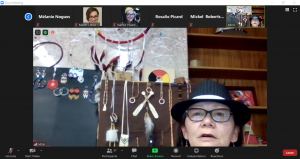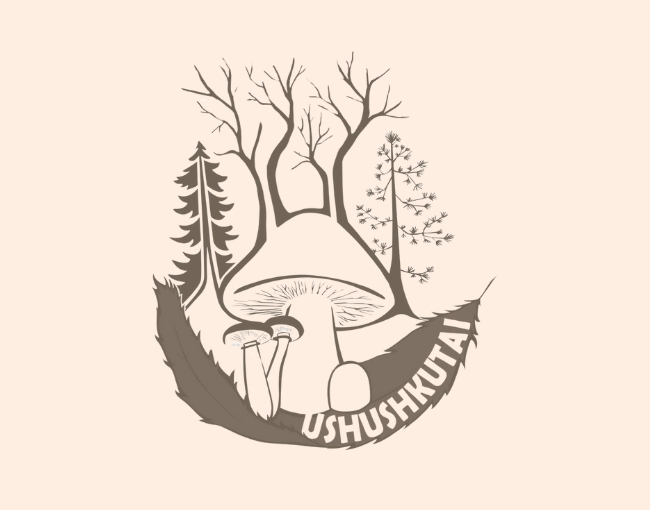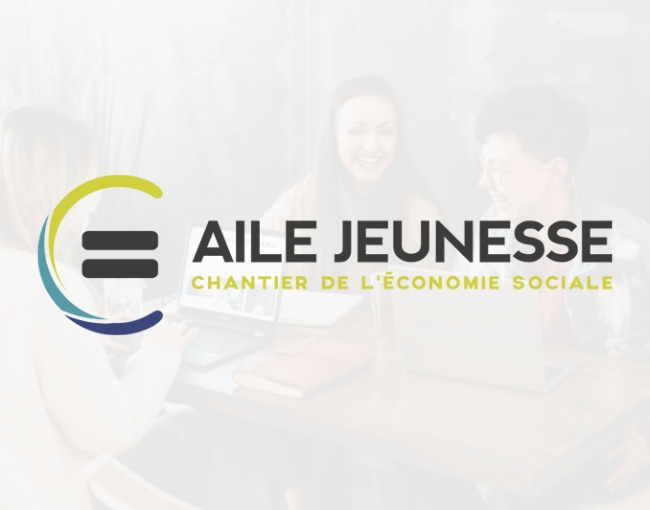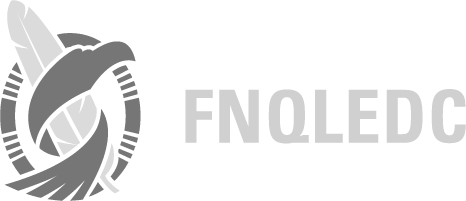It is with great pride that the 10 participants of the StartUP Nations Ikwe 2021 successfully completed their training course in social economy, which began on March 8th. Coordinated by the First Nations of Quebec and Labrador Economic Development Commission (FNQLEDC) and by Quebec Native Women (QNW), the 12-week virtual training course ended on May 31, 2021 during a ceremony that was held on the theme of the “Dragon’s Den” television show.
The StartUP Nations Ikwe is a training program specially designed for Indigenous women entrepreneurs who are interested in developing social economy projects. It aims to bring out collective projects initiated by women while developing their entrepreneurial skills and leadership.
Throughout the course, participants were able to attend thematic conferences (on marketing, finance, project management and communication), ideation workshops as well as exchange activities on Indigenous socio-economic and cultural issues. The ceremony on May 31st was the culmination of the second edition of the StartUP Nations Ikwe course.
A look back at the projects of the StartUP Nations Ikwe 2021
The teams from Kanesatake, Gespeg and Joliette were brought together to present their social economy projects to a panel made up entirely of First Nations women:
- Monika Ille, Chief Executive Officer of the Aboriginal Peoples Television Network (APTN)
- Annick Tremblay, Political Liaison Officer, Assembly of First Nations Quebec-Labrador (AFNQL)
- Michelle Picard, Account Manger, Native Commercial Credit Corporation (SOCCA)
- Jinny Thibodeau Rankin, Director of Finance and Administration, FNQLEDC
The three projects affect various fields and have in common the transmission of First Nations culture at the heart of their mission.

The Kanesatake Team: Kanesatake Food Forest
The “Kanesatake food forest” is a nourishing forest project developed by three Mohawk women from the community of Kanesatake: Jennifer Trentin, Kyla-Emma Theoret and Marie-Claude Sarrazin. Driven by the desire to create a positive impact for the next seven generations, the three women have made it their mission to promote food self-sufficiency, the transmission of techniques and sustainable development.
The nourishing forest consists of a garden where fruits and vegetables, nuts, herbs, medicinal plants and flowers will be grown, using environmentally friendly production techniques. The forest will also incorporate a greenhouse, a kiosk to sell the produce, as well as a “medicine wheel garden”, where members can gather and rejuvenate. The site aims to be a safe and welcoming place for children, seniors and families.
The Kanesatake team, accompanied by Nadia Robertson from Kanesatake Economic & Business Development, won the “Pitch Effectiveness” special mention. The panel praised the team for their excellent speech and visual support, as well as for their efforts to be inclusive with different groups in the community.

The Joliette team: Mamo Oreritamowin project
Composed of Minic Petiquay and Karianne Dubé from the Atikamekw community of Manawan, and Sylvie Thisselmagan from the Innu community of Mashteuiatsh, the Joliette team developed a project that builds on the complementary strengths of its members, all of whom are artisans. The three women want to launch a craft initiative, in partnership with the Centre d’amitié autochtone de Lanaudière (native friendship centre), entitled Mamo Oreritamowin (which means “overview” in the Atikamekw language). Premises will be reserved for the production and sale of the creations of artisans in the future Waskapitan Centre, which will be accommodating the new facilities of the native friendship centre in 2022.
Through this project, the three women want to contribute to the intergenerational transmission of artisan techniques, create jobs for Indigenous women and make artisan products more accessible in the Lanaudière region for both non-Indigenous and Indigenous people.
The panel awarded the team the “Quality Understanding of the Needs of the Environment” special mention while underlining the remarkable contributions of the project to cultural transmission and reconciliation between non-Indigenous and Indigenous people.

The Gespeg team: Mi’gmaq empowerment
Catherine Basques, Roxane Cassivi, Laura Comeau, Mélanie Nogues and Manon Ouellet, from the Mi’gmaq community of Gespeg, developed a crossroads project for the transmission of Mi’gmaq culture and traditions. The crossroads project revolves around several complementary teaching methods: face-to-face and virtual, in schools or in suitable premises, as well as in places of immersion such as a traditional camping site based in Gaspé. The crossroads will provide many training opportunities: crafts, traditional dance, confection of regalia, cultivation of fruits and vegetables, cultivation of medicinal herbs, etc.
The project is aimed at both Indigenous people who want to learn about and reappropriate their culture, and non-Indigenous people who wish to discover First Nations’ culture.
The team, accompanied by Isabelle Vézina of the Mi’gmaq Nation of Gespeg, received the “Teamwork Strength” special mention. The panel highlighted the unifying nature of the project, which honours the varied skills of each of the participants, as well as the exceptional collective work of the team, made up of both French-speaking and English-speaking women.
History of StartUP Nations
Created in 2017 by the First Nations Social Economy Regional Table (FNSERT), the StartUP Nations aims to promote the social economy as a model of socioeconomic development. This event is part of the deployment of the SISMIC social economy youth incubator initiative. It is made possible thanks to the financial support of the Chantier de l’economie sociale and the Secrétariat à la jeunesse as well as, for this edition, the Native Women’s Association of Canada and the Secrétariat à la condition féminine.
To learn more about the StartUP Nations Ikwe, we invite you to read the article The Social Economy for Women: A Glance at the Startup Nations Ikwe.
Further information on the social economy, we invite you to visit our social economy section and to consult our tools on this subject.




